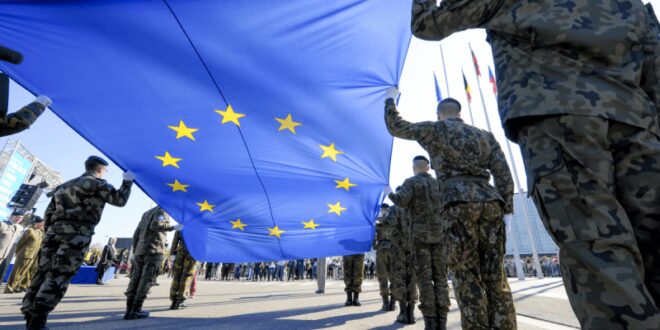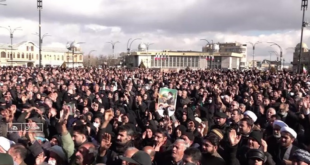The European Union (EU) plays an indispensable role in promoting peace, stability, and security on the global stage, especially in the context of a fragmented and volatile international environment. Built on principles of multilateral diplomacy, humanitarian aid, and defence coordination through the Common Security and Defence Policy (CSDP), the EU remains a key player in addressing critical global challenges such as military conflicts, terrorism, cyber threats, and climate-induced instability.
Though lacking a standing army, the EU’s strategic ability to coordinate civilian and military missions has allowed it to effectively manage crises and contribute to conflict resolution. However, its efforts are hindered by the divergent interests of its member states, increasing geopolitical pressures, and limited resources. To maintain its role as a “guardian of peace,” the EU must adapt its strategies and enhance its capabilities to meet evolving threats and challenges.
The EU’s security framework is grounded in its unwavering commitment to multilateralism and international law. As a primary supporter of the United Nations and NATO, the EU frequently steps in as a mediator during geopolitical crises. One of its most prominent actions has been its response to the ongoing Russian invasion of Ukraine, where the EU has mobilized humanitarian aid, imposed sanctions, and provided military support. This multifaceted approach underscores the EU’s belief in upholding Ukraine’s sovereignty and maintaining global security norms.
Through its CSDP, the EU currently operates 24 missions worldwide, involving over 3,500 military personnel and 1,300 civilians. These missions span regions such as the Sahel, the Balkans, and the Horn of Africa, where the EU addresses key issues like peacekeeping, maritime security, and counterterrorism. This operational reach highlights the EU’s commitment to crisis management through both civilian and military means.
In recent years, the EU has expanded its focus to include emerging security threats that go beyond traditional military concerns. Cybersecurity has become one of the bloc’s top priorities, with initiatives like the European Cybersecurity Competence Centre aimed at strengthening digital resilience and countering cyberattacks. Additionally, the EU has recognized climate change as an urgent security issue, understanding its potential to exacerbate resource conflicts and create waves of migration. The bloc has responded with international climate agreements, integrating environmental stability into its broader security policy. Economic tools also play a crucial role in the EU’s security strategy. The European Peace Facility (EPF) funds defence initiatives and assists with global peacebuilding efforts, further reinforcing the EU’s diplomatic influence and commitment to maintaining stability.
Despite these proactive measures, the EU faces significant challenges in executing its security agenda. A primary obstacle is the lack of consensus among its 27 member states, each with varying national interests and priorities. This fragmentation often leads to delays in decision-making, preventing the EU from presenting a unified front in the face of global crises. Moreover, rising powers such as China and the ongoing threat of Russian aggression test the EU’s ability to assert itself as a diplomatic force. Resource constraints further complicate its security efforts, as missions often rely on voluntary contributions from member states rather than a unified defence structure. Additionally, as cyber threats evolve rapidly, the EU struggles to keep pace with sophisticated attacks that continuously test its digital security frameworks.
To overcome these challenges, the EU must strengthen cooperation among member states through initiatives like Permanent Structured Cooperation (PESCO), which aims to align defence priorities and reduce redundancy. Enhanced coordination will ensure that the EU can act more decisively and efficiently, pooling resources to maximize effectiveness.
Another vital recommendation is for the EU to increase its investment in emerging technologies such as artificial intelligence (AI) and quantum computing. These technologies are crucial in countering cyber threats and hybrid warfare, enabling the EU to stay ahead of potential adversaries. Expanding partnerships with emerging powers and regional organizations will also diversify the EU’s diplomatic influence and bolster its role in global security. Finally, developing a robust European defence industry will help reduce dependency on external suppliers and increase the EU’s strategic autonomy, ensuring that the bloc can respond independently to crises.
Despite these hurdles, the EU’s multifaceted approach to security underscores its ongoing relevance in global peacebuilding. By leveraging its economic strength, diplomatic influence, and innovative capabilities, the EU continues to adapt to the shifting landscape of international security. Its initiatives in Ukraine, climate security, and cyber resilience are a testament to the bloc’s flexibility and commitment to addressing complex global challenges. However, to secure its future role as a guardian of peace, the EU must unite its member states around a common vision, strengthen its defence capabilities, and ensure that its diplomatic efforts remain focused on fostering stability in an increasingly multipolar world.
In conclusion, the European Union stands as a model of multilateral cooperation and proactive security strategy in an uncertain global order. Despite its internal challenges, the EU’s commitment to innovation, diplomacy, and global stability positions it as a key player in maintaining international peace. By embracing institutional reforms, investing in new technologies, and deepening partnerships, the EU can continue to fulfil its mission as a “guardian of peace” and remain relevant in addressing the complex security issues of the twenty-first century.
 Eurasia Press & News
Eurasia Press & News




